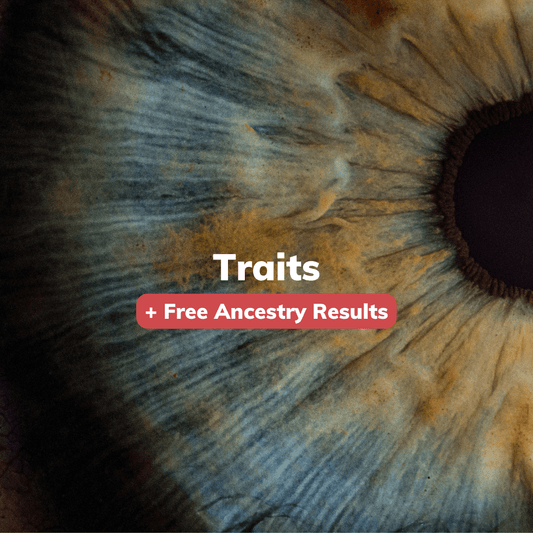
Baldness
Celine HaarhoffBaldness, also known as alopecia, is a common condition affecting millions worldwide. It is characterized by a loss of hair on the scalp and can have a significant impact on a person's appearance and self-esteem. While the causes of baldness are not entirely understood, genetic factors are believed to play a major role. This article will discuss a person's genetic predisposition to baldness, its symptoms, and how a genetic test can help.
First, let's talk about the genetics of baldness. The most common type of baldness is called androgenetic alopecia, which is caused by genetics and hormones. Androgenetic alopecia is an inherited condition that is passed down from one generation to the next. It is more common in men than women, and it typically becomes noticeable in men in their twenties or thirties.
The specific genes associated with androgenetic alopecia are not fully understood, but researchers have identified several likely to play a role. These include the AR gene, which produces hormones called androgens. Androgens are important for developing male characteristics, such as facial hair and muscle mass. However, they can also contribute to hair loss when they are present at high levels.
Another gene that has been implicated in androgenetic alopecia is the CYP17A1 gene. This gene produces steroid hormones essential for developing male and female characteristics. However, high levels of steroid hormones can also contribute to hair loss.
So, what are the symptoms of baldness? The most obvious symptom of baldness is hair loss on the scalp. This can range from mild thinning to complete baldness. In some cases, baldness may also affect the eyebrows, eyelashes, and other areas of the body where hair grows.
Baldness can have a significant impact on a person's appearance and self-esteem. Many people who experience baldness may feel self-conscious about their appearance and may try to hide their baldness with hats or other types of headwear. In severe cases, baldness can lead to depression and other emotional problems.
So, how can a genetic test help? A genetic test is a simple and non-invasive way to determine if you have a genetic predisposition to baldness. By analyzing a sample of your DNA, a genetic test can identify the specific genes associated with baldness. This information can help you understand your risk of developing baldness and allow you to take steps to prevent or slow down the hair loss process.
For example, if you have a high risk of developing baldness, consider taking steps to maintain a healthy scalp and hair. This can include using shampoos and conditioners specifically designed to promote healthy hair growth, avoiding harsh chemicals and heat styling tools, and eating a healthy diet rich in vitamins and minerals.
If you are concerned about your risk of developing baldness, a genetic test can provide you with valuable information that can help you take control of your hair health. By understanding your genetic predisposition to baldness, you can make informed decisions about your hair care routine and take steps to prevent or slow down hair loss.


